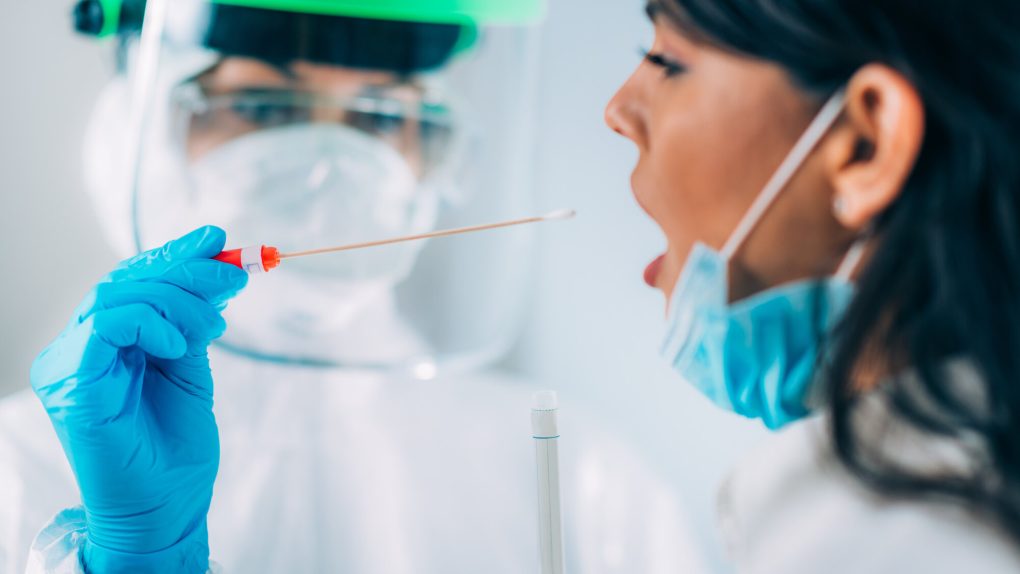- Researchers studying coronavirus patients’ immune responses might finally be able to explain why some people risk developing life-threatening COVID-19 complications.
- The COVID Human Genetic Effort detailed a pair of breakthrough findings about interferon issues that might put lives at risk during the course of COVID-19.
- The scientists found that some people have autoantibodies to interferon, while others may suffer from previously undiagnosed genetic conditions that impact interferon functionality.
Whether it’s the novel coronavirus or a different infectious disease that can lead to life-threatening complications, vaccines are only a part of the solution. The biggest news of the week was the incredible announcement from Pfizer and BioNTech that says their drug was found to be over 90% effective against the pathogen so far. The final results from the Phase 3 trial may vary and that efficacy figure might end up being lower, but it’s obviously a great place to start.
Preventing infections and severe COVID-19 cases will not be enough as long as thousands of people continue to die of complications worldwide. It will take time for vaccines to meet demand, and more people will get infected in the meantime. The world still needs effective therapies that can further reduce the risk of death until a large percentage of the world is immunized, and transmission risk is significantly reduced. A pair of studies might have just delivered the breakthrough coronavirus finding that could allow doctors to do just that, prevent more COVID-19 deaths in the coming months while we wait for vaccines and other effective treatments.
Today’s Best Deal

Doctors explained in mid-May that the coronavirus does something incredibly sneaky upon infecting cells: it blocks the local production of interferon and delays the immune response, allowing the virus to replicate and infect more cells unchecked. That’s why so many teams have started interferon-based trials, thinking that treating COVID-19 with interferon could prevent severe illness. A study from the World Health Organization failed to show that interferon can prevent deaths. But several developments might allow doctors to fine-tune interferon therapy and test it further.
It all started in late September when a couple of studies described a key interferon-related phenomenon that can increase the risk of death in COVID-19 patients, including younger men. Genetic issues impacting interferon that go undetected until a COVID-19 diagnosis could worsen the prognosis. Those studies indicated that looking for hidden interferon imbalances would allow doctors to determine which COVID-19 patients are at risk of developing severe complications.
This brings us to a pair of larger studies that NBC News just highlighted, which provide additional details about the interferon issues that could lead to complications.
An international team of researchers published a study in Science that says 10% of 987 patients hospitalized with severe COVID-19 had antibodies that disabled interferon. These are known as autoantibodies and can appear in autoimmune diseases or medical conditions where the body attacks itself. Of the patients who had autoantibodies, 94% were men.
The study comes from the COVID Human Genetic Effort, which includes 200 research centers in 40 countries. It’s much larger in scope than the September studies.
Interferon autoantibodies were absent in a group of 663 asymptomatic COVID-19 patients. The researchers said that only 4 of 1,227 healthy people in the control group had the same autoantibodies. If the data is accurate, then doctors treating COVID-19 patients might soon start testing for interferon autoantibodies to catch potential severe cases as early as possible.
The people who have autoantibodies against interferon have always had them. It’s not a byproduct of the coronavirus infection. It’s unclear why other infectious illnesses like the flu have not brought these interferon issues to light in the past.
“This is one of the most important things we’ve learned about the immune system since the start of the pandemic,” Scripps Research vice president Dr. Eric Topol told NBC. Topol wasn’t involved in the studies.
That’s not the only interferon problem the COVID Human Genetic Effort group has identified. It also authored a second study that says 3.5% of critically ill patients had mutations in genes that control interferon. The body has 500 to 600 such genes, with Dr. Qian Zhang saying they may identify more mutations. Zhang was the lead author of the second study. The discovery can also explain why men of all ages might be impacted more by interferon problems than women.
“Interferons are like a fire alarm and a sprinkler system all in one,” virologist Angela Rasmussen explained to NBC. Rasmussen wasn’t involved in any of the studies. If the virus can suppress interferon activity, then people who might suffer from a genetic interferon condition might have a higher risk of developing severe illness.
“Your body should have alarms ringing everywhere,” when the coronavirus arrives, Zhang explained. “If you don’t get the alarm out, you could have viruses everywhere in large numbers.”
Screening for interferon autoantibodies might become the norm for COVID-19 management, but scientists will need more data. NBC notes there are more than 100 clinical trials involving interferon and the coronavirus, according to clinicaltrials.gov. New interferon-based therapies might soon emerge from the trials. Doctors from Britain have just published a study in The Lancet saying that an inhaled version of interferon beta-1a benefited COVID-19 patients. The randomly assigned people who received the drug were twice as likely to fully recover. This is the promising drug SNG001 from Synairgen that was first detailed in mid-July.








